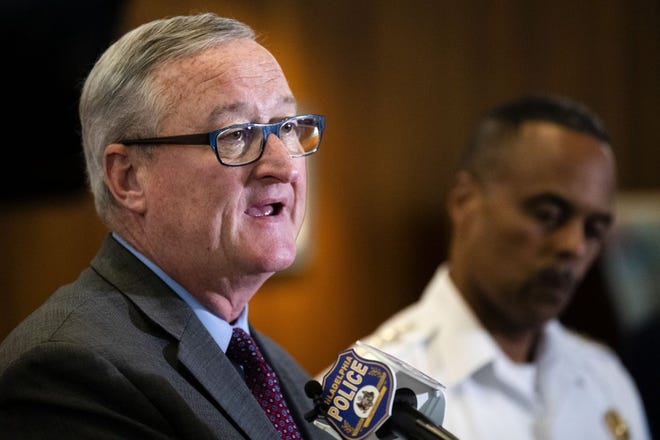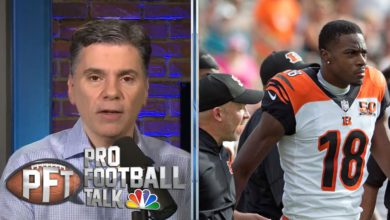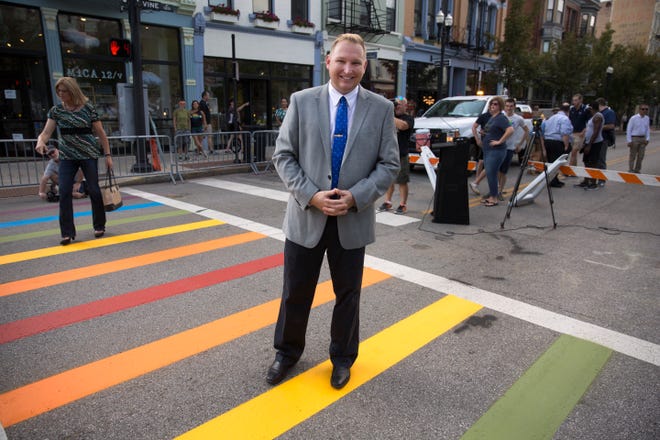
Philadelphia will become the first major U.S. city to ban police from making traffic stops for minor violations such as a broken taillight when Mayor Jim Kenney signs City Council-approved legislation as soon as this week.
Such stops have been encouraged in some police departments as a pretext to search vehicles of drivers suspected of carrying illegal drugs or weapons. But critics of the stops say they prompt a disproportionate number of stops involving drivers of color.
"#DrivingEquality reinforces that public safety can be achieved with other methods than traffic stops," Councilmember Isaiah Thomas, the bill's author, tweeted Sunday. "Traffic stops are traumatic for drivers and scary for police officers. Limiting them makes everyone safer and communities stronger."
The issue resurfaced in Brooklyn Center, Minnesota, in April when Daunte Wright, a 20-year-old Black man, was fatally shot during a stop initiated for an air freshener hanging from his rearview mirror and expired car registration tags. Officers later tried to arrest Wright for an outstanding warrant and, after a brief struggle, Wright was shot at close range.
A goal of the Driving Equality Bill is to ease tension between police and community members by removing possibly dangerous interactions through minor traffic stops. The law divides motor vehicle code violations into "primary violations" that will continue to draw traffic stops in the interest of public safety and "secondary violations" that won't.
What Black drivers face: Police officers speak to Black drivers less respectfully, study finds. Here's why it matters
"These bills end the traffic stops that promote discrimination while keeping the traffic stops that promote public safety," the City Council said in a statement.
The plan also allows police to redirect time and resources toward safety while removing "negative interactions that widen the divide and perpetuate mistrust," the statement said.
The legislation was driven in part by an examination of 309,000 traffic stops using police data collected between October 2018 and September 2019. Former Chief Defender Keir Bradford-Grey said 72% of the stops involved Black drivers; fewer than half the city's drivers are Black. After the stop, Black drivers are twice as likely to be searched but are 35% less likely to be found with contraband, she said.
The legislation will help take the "targets off the backs of Black people," Bradford-Grey said.
The police department and Kenney's office were involved in crafting the legislation. Francis Healy, special adviser to Philadelphia Police Commissioner Danielle Outlaw, has expressed support for the bill and said it would not impair an officer's ability to stop a driver suspected of committing a crime.
Thomas, who is Black, said his office was flooded with calls from people complaining of humiliation and trauma at traffic stops. Thomas said the legislation will make the city's streets safer and more equitable.
"To many people who look like me, a traffic stop is a rite of passage," Thomas said. "We pick out cars, we determine routes, we plan our social interactions around the fact that it is likely that we will be pulled over by police."
A Chicago museum 'fired' its volunteers. Diversity consultants back the decision.
Thomas said he wants his sons and other Black children to grow up in a city where being pulled over is not a rite of passage but a measure promoting safety "regardless of the skin color of the driver.”

The bill allows the Philadelphia Police Department 120 days for training and education before being implemented. It won overwhelming approval from the City Council with a 14-2 vote. A companion bill, approved by a 15-1 vote, mandates a public, searchable database of traffic stops that includes driver and officer information, reason for conducting traffic stop as well as demographic and geographic information.
Social media exposes police brutality, but doesn't always lead to actual change
Data was a main component in illustrating the problem and will be a major factor in analyzing the success of the measure or a need for alterations, Thomas said.
“Data and lived experiences showed us the problem and data will be key to making sure this is done right,” Thomas said. “Data will tell us if we should end more traffic stops or amend how this is enforced. Data will also tell other cities that Philadelphia is leading on this civil rights issue and it can be replicated.”
Source link







